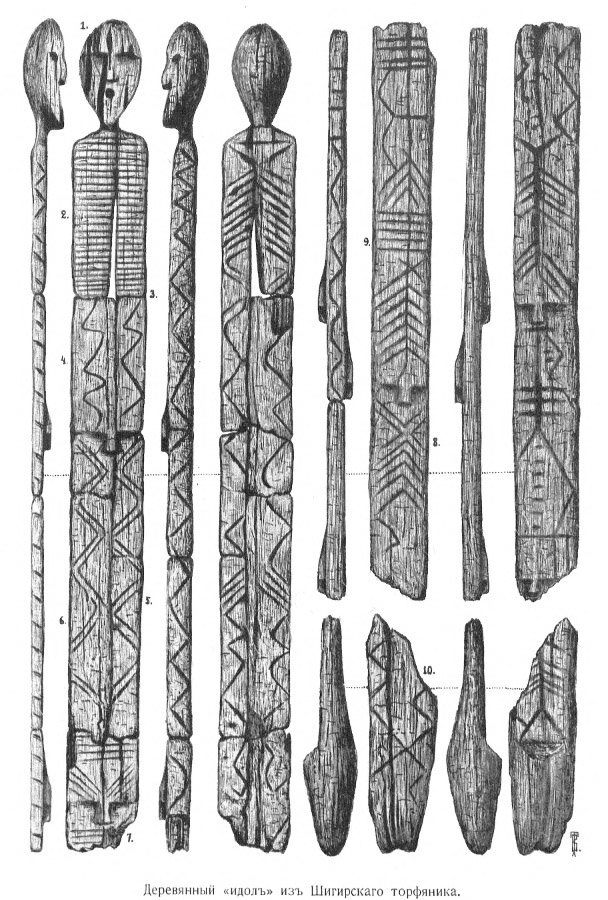FOUND: The Mysterious Shigir Idol May Be 11,000 Years Old

The Shigir Idol (Photo: Владислав Фальшивомонетчик/Wikimedia)
The Shigir idol was found in 1894, in a bog in western Siberia. Bogs are unusually effective at slowing the decay of organic matter: the microbes that speed rot don’t like living there. So it was likely that the Shigir idol, a long wooden statue with strange markings on its torso and a head on top, was very, very old.
When scientists dated it in the late 1990s, they found that it was 9,500 years old. But a new analysis of samples from the statue has found that it may be even older than that, and was first created 11,000 years ago.
The statue is covered in geometric-looking designs. No one know what they mean: there’s speculation that they designate ideas of earth, sky, and danger. Besides the three-dimensional face atop the statute, there are faces etched into the wood lower down, too, and the new analysis puts the total number at 8, one more than previously detected.
The idol would have stood about 17 feet tall and was made from a larch, cut down by stone tools. (It’s not clear how it was made to stand.) It was originally found in pieces—some of which have since been lost. A drawing of the complete set was made about a century ago, by the Russian archaeologist who proposed the configuration of the piece.

Vladimir Tolmachev’s drawings (Image: Vladimir Tolmachev/public domain)
In more than a hundred years, it’s become clear that this is the oldest wooden statue currently known—but we still have no idea what it was intended for.
Bonus finds: Two-headed pig, a giant sheet of ice on Mars
Every day, we highlight one newly lost or found object, curiosity or wonder. Discover something unusual or amazing? Tell us about it! Send your finds to sarah.laskow@atlasobscura.com.









Follow us on Twitter to get the latest on the world's hidden wonders.
Like us on Facebook to get the latest on the world's hidden wonders.
Follow us on Twitter Like us on Facebook